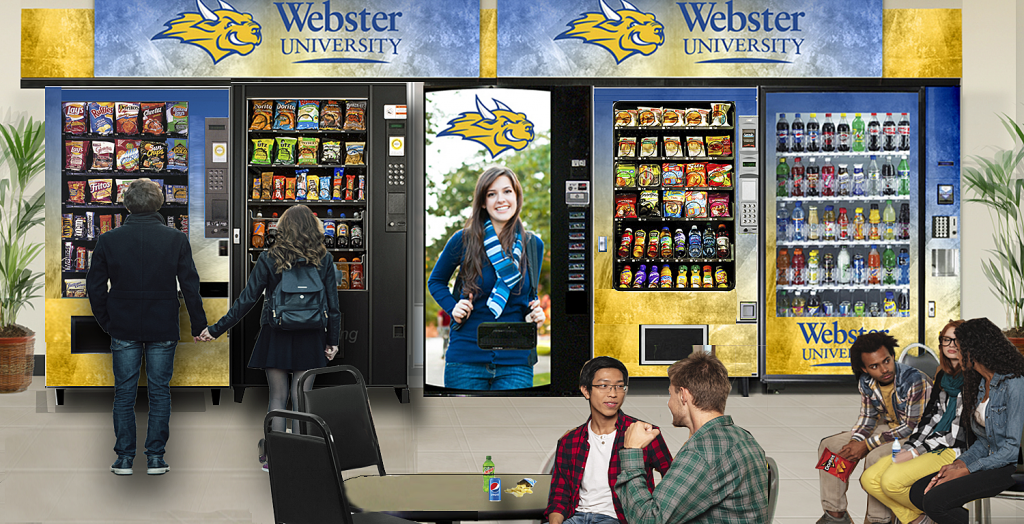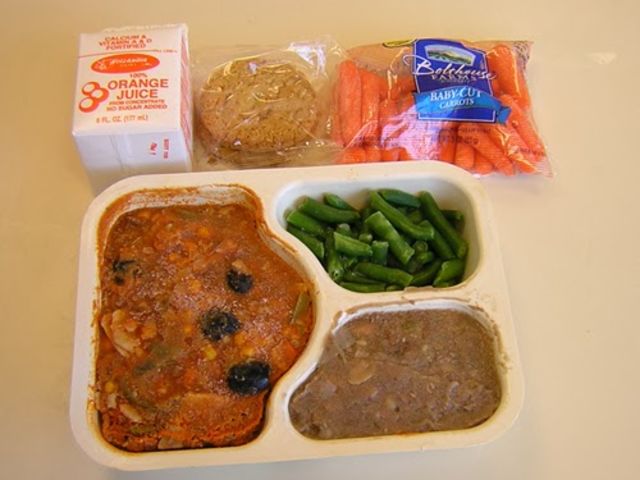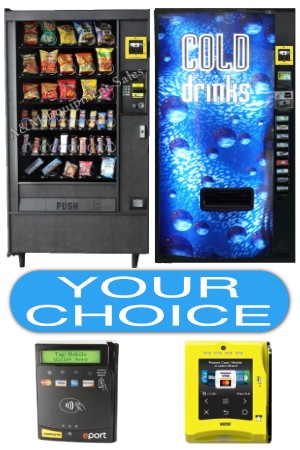by Abco | Jun 26, 2013 | Vending Business Show
An interview with Seden Harrison of SmartSource Vending about Government Regulations School Vending.
[powerpress]
You’ve been keeping up with the Federal legislation as it relates to Government Regulations School Vending, what are you learning?
A couple months ago the USDA came out with a stringent ruling with a 60-day open opinion on it. The ruling is basically highly controlling of the content on the snacks and drinks served in schools. They are proposing tohave Government Regulations School Vending and regulate school stores, ala-carte lines, vending; they say they aren’t touching the fundraising, but the wording says:
“If there are too many fundraisers selling the traditional items, that will be regulated as well.”
It should be about choice, not regulation.
The USDA is focused on the childhood obesity issue in schools and vending seems to be an easy bulls eye. But there are so many other ways students get these items that it seems the wrong approach and too much regulation. The schools don’t want it either and are in favor of choice; they make money on the commissions; they are struggling with many cut backs. They don’t want the regulations to deal with and they don’t want to lose the funds.
Are there places that are benefiting from healthy vending?
I know from personal experience and from the corporate side, people want the choice. It’s good to have the option vs. “I’m told this is all you can have.” When the Government Regulations School Vending, I tend to find what I want elsewhere.
The government regulations school vending has also made a big push to get the calorie disclosure for all products and this might be a good compromise. Most people already know what’s what in terms of nutrition, but if you still don’t know what to pick, here’s all the calorie and nutrition info for each product. All vending machines are moving toward calorie and nutrition disclosure in 2014.
Do we want to be completely 100% healthy vending in a location? Absolutely not. Do we want to provide the choice? Yes.
There are many places where 100% healthy vending has gone into a government location and a year later you read the report that shows sales have plummeted and things aren’t doing that well. What happens to us vendors? It requires us to raise the prices and they don’t sell as fast so we’re dealing with expired product and a loss.
It seems like the government is saying “if you really don’t have other options as a child, you learn to chose what is more healthy.” What do you say about that?
In theory yes, your starving and trapped on an island that has nothing but bananas and coconuts, yeah you’re going to choose the healthy items. But these kids, and I have kids of my own who are teenagers. We are preparing them to go out into the world, especially high school kids, get jobs, join the military, become self sufficient, do you really believe that if you tell them “you can’t have this” that they’re not going to find a way around it?
We’ve already seen this with the American Beverage Association agreement that Coca Cola and Pepsi made. They agreed they would only stock certain types of drinks with less sugar. Sales plummeted, but what happened… kids stopped by QuikTrip before and during school. They find ways to circumvent it.
On top of that you aren’t teaching them anything, the forbidden is always more enticing. When you ban it, they want it even more.
What is the ABA?
The American Beverage Association (a trade organization representing the nonalcoholic beverage industry in the US) worked with Coca Cola and Pepsi to come up with a plan to meet these so-called healthy requirements and in the schools they agreed on the drinks that they will stock.
When this happened, sales went down, the kids found ways around it. And when some kids can’t find a coke classic, they do buy a diet coke – but it’s not solving the problem of obesity. It should be about doing things in moderation.
It’s my job as a parent to deal with obesity, not the government’s and not the school’s job either.
On a federal level, what can a vending operator do to let their voice be heard?
1. Look at the USDA website, especially when they are open for comments on policy from the public.
2. Contact your local representative, their job is to listen to you.
3. NAMA has been very helpful. Eric Dell, senior VP of government affairs, has been right there on the front lines. They can help with communicating with the government. The more operators we have contacting them, the more ammunition that they have at the ground level.
It’s almost understandable to regulate the elementary level students, but high school students? Really?
I have accurate records of sales in the schools we operate in showing what students are purchasing per capita between healthy vs. traditional items and it is not what you think.
When you aren’t in the vending industry it’s not obvious that there’s a business behind a vending machine. Healthy items are more expensive and when a customer asks to stock only healthy items, they often act like they are being price gouged when in reality the costs are higher for those items.
[powerpress]
Episode Transcript:
Tom Shivers: This is Tom Shivers with the Vending Business Show, here with Seden Harrison of Smart Source Vending. Today we’re talking about Government Regulations School Vending. How are you today, Seden?
Seden Harrison: I’m good, Tom, how are you.
Tom Shivers: I’m doing good. And I know you’ve been involved in keeping up with some of federal legislation and what’s going on there, especially as it relates Government Regulations School Vending. You’re doing vending here in the state of Georgia, what are you learning in that area?
Seden Harrison: I do know that, there’s different things going on different states as far as regulation that’s pending and out there, but the big thing that happened a couple of months ago is the USDA came out with a ruling of very, very stringent, and they came out with this ruling, and it had a 60 day open time for people to come in and to make their opinions known, whether they were for it or against it, and the ruling is, and I don’t have the details of what it is. But basically it’s pretty much very highly controlled as far as what the fat, the sugar, the salt and all these contents on all these snacks and on the drinks and everything.
Seden Harrison: What they’re proposing is not only to the vending, but in these schools, they want to regulate the school stores, they want to regulate any of the a la carte lines, they want to regulate vending, they say they are not touching any of the fundraisers, but when you read the ruling like the following paragraph says that if there are too many fundraisers that are selling the traditional items, that that will also be controlled. It’s, for me as an operator, and we are in a lot of schools, it’s very scary because the reality is the students, adults, everybody, it’s about choice, and when you tell someone, not to pick on granola bars, but, here’s a vending machine and it’s all granola bars and carrots and whatever that somebody has deemed as healthy, it doesn’t work that way. If somebody wants to get their Snickers bar, they’re going to find a way to get their Snickers bar.
Seden Harrison: Right not the USDA is focusing on this obesity issue and they’re focusing on the schools. Vending seems to be an easy bullseye because you’ve got this box with all these items that are deemed as unhealthy, and it’s just a very, very easy target. There’re so many other ways that these students can get these items, and they do get these items, that I think the approach is incorrect, and it’s just too much government control.
Seden Harrison: The schools don’t want it either. The schools aren’t looking for this either. The schools want to provide the choice. The schools make money on commissions from all these services, and that they utilize for things they need. All these schools are struggling with so many cutbacks and so many hurdles. They don’t need the regulation to have to deal with, and they don’t need to lose the funds.
Tom Shivers: It sounds like there’s a lot of fear about this issue. Are there some places that are really benefiting from healthy vending?
Seden Harrison: I think again, I don’t claim to know everything, but I know from our experience from the corporate side and from the school side, and things that I read, people just want a choice. I don’t know that there’s any operators out there … well, I shouldn’t say that. I think there are definitely some companies that are franchise sort of situation, and they market only the healthy aspect of things. That may be working great for them. I don’t even pretend to speak for them. I just know from personal experience, even on the corporate side of things, you go into a company and they want to have the choice. Me as an individual, myself as an adult, anybody walking up to a machine, if you go to that machine and you want to purchase a snack, it’s good to have the options versus I’m being told this is all I’m allowed to buy. And I’m not going to do it. If I don’t want it, I’m going to find another way to get the product.
Seden Harrison: This is the way in everything out there. Whether you drive to a restaurant that has healthier options or you choose to drive to a restaurant that has less healthy options, again it’s about personal choice, making that choice. I know the government too has made a big push about the calorie disclosure and trying to get all that. As much as that is a difficult thing for all of us as vendors to do, and I know they haven’t even figured out quite how that’s going to happen, that may be the compromise. That might be the middle ground that says, “Here’s a way to present the nutritional information on the products in a machine, and if you really have no clue still what to pick, guess what you can read the calorie information and the nutrition information.
Seden Harrison: The pointless side of that is I think most people still know whether they read what’s on the packaging, what’s good for them and what’s not good for them. I don’t know if I’ve answered your question. Do we want to be completely, 100% healthy vending in a location? Absolutely not. Do we want to provide the choice for whether it’s to students or to adults? Yes. The government is trying so hard, even … and I don’t know exactly which states, but I’ve read articles about different control in government buildings where they’re removing, it’s a county building or whatever, and they’re removing all their traditional items. And they’re only going to stock healthy items. And a year later you read the report that sales have plummeted and that things are not doing that well.
Seden Harrison: Unfortunately what happens to us in the industry is we go and we try to put all these healthier items in a machine. One, you have to raise the price on everything, and two, they just don’t sell as fast. Us as an operator, we’re dealing with expired product and a loss on everything. Nobody thinks past that point. They just say, “Oh, yes, stock it with all this stuff that’s supposed to be healthier for you.” It’s just not …
Tom Shivers: It seems like one of the government points is, “Hey, if you really don’t have other options, then you start, if you’re a child, you start learning to choose what’s more healthy?” What do you say about that?
Seden Harrison: All right, you want to hear my opinion about that? In theory, yes. You’re starving, you’re trapped on an island. It’s the only vending machine on the island has bananas and coconuts, nothing else. Yeah, that’s the only way you’re going to be forced to buy that situation. But these kids, without a doubt, and I have kids of my own that are teenagers, that I am constantly trying to get them to eat the right things and be healthy in their choices and everything. These kids, especially high school kids, that we are supposedly preparing to go out into the world, whether it’s go off to college, join the military, get jobs, become self-sufficient. Do you really believe that if they want to have a Coke, and I’m not trying to pick up one product, a sugar drink. Or if they’re trying to have a chocolate bar or candy or whatever.
Tom Shivers: Or sports drink.
Seden Harrison: Or Doritos or sports drink. Do you really, really think that if you tell them, “You can’t have this,” they’re not going to find a way around it? It’s already happening in schools. Schools where a few years back the American beverage association made an agreement with Coke and Pepsi that they were only going to stock these certain types of drinks, whether it’s Coke Zeros and Diet Cokes and waters, and not put the sugar drinks it. Sales plummeted.
Seden Harrison: But what’s happening? I have kids that are high school kids in these schools. These kids stop at Quick Trip in the morning before school, or they run across, if there happens to be a Quick Trip close to the school, they leave between breaks, even though they’re not supposed to leave campus. They leave campus, they go get their drinks. Kids bring it from home. They find ways to circumvent it. And that’s exactly what’s going to happen.
Seden Harrison: And on top of that, the forbidden is always more enticing. You’re not teaching anything. You’re not teaching anybody anything other than when you tell them, “ban it, ban it, ban it, ban it,” they want it even more. All of this … see you got me mad and started now.
Tom Shivers: You mentioned the ABA. What is that exactly?
Seden Harrison: The ABA is the American Beverage Association. Coke and Pepsi, and I don’t remember how many years ago, Coke and Pepsi made, on a push to move forward on this initiative to show basically the world, the industry, that they are all about concern for the health and well being of children. They said, “Look, we’re going to come into this agreement with the American Beverage Association and come up with a plan of which drinks meet these so called healthier requirements. When we go into any of the schools, these are the only types of drinks we’re going to stock.”
Seden Harrison: That’s what’s going on. What I’m not sure about is, I’m don’t know if that’s in all the states. I know that’s here in Georgia, and I’m guessing it’s across the country. Anyway, that’s kind of what’s going on with the schools, but like I said, we’ve seen in action what’s happened. The sales went down, kids find a way around it. Yes, the occasional kids, when they can’t find anything else they go and they buy their Diet Coke instead of a regular Coke. They do all that, but it again is not solving the problem. The problem, truly, there is an obesity problem. There’s a health problem from adults to kids to everything. But it’s about being educated, it’s about knowing the right choices. It’s about doing things in moderation. There’s nothing wrong with having a couple of snacks a week. If you have a Coke or you have a candy bar. There is nothing wrong with that as long as it is balanced with healthy activity too.
Seden Harrison: Are there people that abuse it? There’s absolutely. I have to stop my kids from coming home and popping open a Cokes a day. I have question how many they had, and I try to limit them to one a day. Do they get around it? Of course they do, and I have to watch what they’re doing? Of course I have to. It’s my job as a parent. It’s not the government’s job. And it’s not the school’s job either. They have plenty on their plate.
Tom Shivers: On a federal level what kind of things can a vending operator do let their voice be heard?
Seden Harrison: I know when the ruling came out there was an open period where you could comment on the ruling. If you go to the USDA website, you can actually look up the ruling, you can read all the comments. They’re open for public view. What I have done, personally, there’s a couple of things. Contact your local representative for one. Their job is to listen to what you have to say, and if they can do anything to assist, they are your representative, they need to hear how businesses are affected in the area.
Seden Harrison: Above and beyond that, the biggest support and the biggest help I’ve received is through our association NAMA. They have been so great, and Erik Dell who is the senior VP, I believe, of Government Affairs. He is right there on the front lines. He has been so responsive, so amazing, so informative, guiding me through this. Not only him, but his staff too. I’ve written letters to different people, and I can send it to them. They read it, they proof it, they make sure I don’t sound like I’m just angry and spewing a bunch of stuff. They point me in the right direction, and they help me draft these letters so that they sound very good and I make very valid points.
Seden Harrison: The more operators that we have contacting them, the more ammunition that they have from the ground level to go, “look, you’re picking on an industry that is not going to solve this problem that exists out there. It has nothing to do with this industry. The schools too, the same thing.” The problem isn’t in the schools, it all starts at home, it starts at habits with home and what’s going, and what these kids are learning. The most ironic thing I go back to is trying to regulate high school kids who have mobility. They have jobs. They have money in their pockets. They have cars. To ban them, it’s almost understandable to say to the little ones that are very … even at home I’m sure not allowed to eat as much of the traditional items and have free access to the pantry. You control all that a lot more. I can even understand even on that level. But high school students? It’s so counterproductive to make the government to come in and control what they’re eating.
Seden Harrison: And another point I have to make is, without divulging all the details on sales, if you … I have accurate records on what the sales are in each of the schools that we are a part of. The quantity purchased from these kids is not as high as you would think. The reason it seems so high is when you deal with student populations of these big schools of 2,000-3,000 students, you’ve got a lot of students versus an office of 100 employees. 2,000 kids in a week, of course they’re going to purchase items and the numbers seem high. But when you break it down as to what they’re spending per week, per student, and you take an average, the number is very, very low. It’s not near what they seem to be thinking is going on.
Tom Shivers: In terms of the traditional versus healthy?
Seden Harrison: In terms of traditional versus healthy. For example, the way … some of the things I’ve read, they make it sound like each student is spending $10 a day on snacks and drinks. Their whole meal consumption is unhealthy, unhealthy, unhealthy, unhealthy. Are there some students that do that? There is no doubt there are some students that do that. And are there some students that don’t even go near any of this stuff? There’s some students that don’t even touch any of that stuff. It’s all about averages. It’s all about the balance. If you look at the balance. The usage is not the way people think. That’s my two cents.
Tom Shivers: That’s what I mean. If somebody wanted to get a breakdown on the numbers from the government without crossing the-
Seden Harrison: I’ve already volunteered all my sales information to these parties. To the USDA. To NAMA and everybody. I’ve said I have absolutely no problem showing this to you to prove to you that it’s not what you think. Unfortunately, I also get it. In theory I get what this is. I get it. But, as always when you’re on the other side of it and you’re a part of it and you’re in the industry, and you learn, I mean, I had a different view of the vending industry too. One of the things with vending, you almost don’t even think about it being a whole business behind it when you’re not in the industry. Everyone thinks that a vending machine, “Why aren’t things super cheap in here? Why is this much? Why is that much?”
Seden Harrison: No one thinks past the fact that there’s a whole business running behind it with all the operations and overhead and everything else. I’m going off on a different tangent, but it goes to the healthy when companies say, “I want you to stock only healthy products in here,” and then you tell them, “I’m sorry I can’t sell this product for less than $2 or $1.50. And they’re upset over that. They think you’re price gouging them, but you’re not. Your cost is high and the items are more expensive for those items.
Tom Shivers: Right. They can work in some environments. I’ve read where they do in certain areas. But across the board-
Seden Harrison: Well they do work. But again it’s choice. We have Avanti Markets in place too that have a wide variety of stuff. But both items sell. The healthier stuff sells and the maybe not-so-healthy sells. Inconsistent. I can see purchases on different people and one day somebody’s deciding they want to buy something healthier, and the next day they want that candy bar. It’s again choice. Provide choice for everybody.
Tom Shivers: Thanks Seden for sharing with us. Tell us a little more about your business.
Seden Harrison: We’ve been in the business not super long. Over four years. It’s growing. We love it and we’re learning a lot. This whole new USDA regulation or potential regulation is definitely caused a huge concern because we’re growing as I said, and we’re growing by word of mouth, which is wonderful, but you just don’t know if the government’s going to shut things done and pull the rug out from under us, and what exactly is going to happen. But we’re hoping for the best and just plowing for the best and moving forward. We love it. It’s been a great learning experience. Growing and learning every day basically.
Tom Shivers: You’ve been listening to the Vending Business Show, a publication of A&M Equipment Sales.
Look at some of our fine vending machines https://www.amequipmentsales.com/prodcat/new-vending-machines/
by Abco | Nov 27, 2012 | Vending Business Show
School and Healthy Vending Integration An interview with Seden Harrison of Smart Source Vending 
“We started in the vending industry interested in promoting the healthy vending options to the schools… and we learned very quickly that all healthy vending is not necessarily the way to go. People like choices – some of the products are healthy, but then there’s your traditional, not so healthy stuff, that’s also available in the machines.”
“Our biggest thing with the schools is… we make sure they are very well taken care of. So if that school needs something, we are there that day to take care of the problem… It’s a priority to take care of those kids that day and to make sure the administrators are happy.”
“There’s talk about all sorts of regulation that really is in the pipeline (regarding healthy)… to regulate the vending in schools… it’s going to become problematic because students will figure out how to circumvent the system.”
“Why can’t you marry the two together, why can’t that choice be there?”
Seden shares more experiences, opinions on regulation (quite humorous) with healthy vending and school vending or School and Healthy Vending integration in the podcast:
EPISODE TRANSCRIPT:
School and Healthy Vending integration Tom: I’m Tom Shivers with The Vending Business Show, here with Seden Harrison of Smart Source Vending. Today we’re going to be talking about a few topics: healthy vending and school vending. Thanks for being here, Seden.
Seden: Thank you, Tom.
Tom: Now, tell me, how did you get into school vending?
Seden: A little bit of an accident, actually, but it turned out to be a good accident. We had originally started into the vending industry really interested in promoting healthy vending options to the schools. That was the key approach when we first started in with the school. We learned very, very quickly that all healthy vending is not necessarily the way to go. People like choices. People like choices. We provide … Some of the products are healthy, they can definitely choose those products, but then there’s your traditional not quite so healthy stuff that’s also available in the machine.
Seden: The thing about the schools is they’re a very hard group to get into, but if you do well with one, they will definitely refer you to the next, and onto the next, and onto the next. Our biggest thing with the schools is … We have our own kids in the Gwinnett County School System. We’re very active in sports, in schools, and everything else, so there’s that connection we naturally have to the schools. We wanted to definitely give back and take care of … We just make sure that they are very, very well taken care of in the sense of, if that school needs something, we’re there that day to take care of the problem.
Seden: If anybody tells you that a vending machine is never gonna jam, or a vending machine is not going to have a problem, they’re not telling you the truth. The key is, what does the operator do to resolve that? If we get a call that says there’s a problem with a machine, we are out there that day to take care of it. We don’t push it off. It’s a priority to make sure those kids are taken care of and the administrators are happy, because another thing you don’t want is mad kids in the school. Those machines, if something jams, they love to rock it and shake it and try to get their product out and do different wonderful things to it, so you’ve gotta stay on top of it.
Seden: As far as the healthy goes, it comes down to choices. There’s talk about all sorts of regulation that really is in the pipeline. Whoever gets elected is going to depend on what happens, but there’s a lot of talk about regulating the vending in the schools. It’s happening in a lot of other states and could very well happen in Georgia. It’s gonna become problematic because students will figure out a way to circumvent the system, and that’s the bottom line. I’m a strong proponent on choice, just put part healthy, part junk, if I can say that, but part not so healthy, and let the person choose. These kids are old enough to make these decisions. We’re not talking about elementary school kids. These are high school kids that are driving and are working, and they have money. If they don’t buy it at school, they’re gonna buy it somewhere else. They are past that point of forced decision, making them to make the right choice. They know right from wrong and what they should do.
Tom: So regulation ain’t gonna help them, huh?
Seden: Regulation’s not going to help them. I would say it’s like prohibition, it didn’t work. The kids are going to black market sell the candy. They are going to figure out ways to get around it, and ultimately that hurts the schools. The schools do get commissions from these machines, and if sales drop, those are funds that the schools use for multiple things. If sales drop, it does, it affects the schools, and they already have a tough time with the budget cuts and everything else. I don’t know.
Seden: I read the different vending articles that come out across the country that such-and-such parks and recreation has decided to only provide healthy products in their machines. I think having the healthy option is great, and I think it’s absolutely necessary, but I really don’t believe in it needs to be all or one or the other. Why can’t you marry the two together? Why can’t that choice be there? Why does somebody have to tell me, if I’m craving a Snickers bar and I walk up to that machine and all I’m looking at is granola bars, and I don’t want that granola bar, I want a Snickers bar, you know? Give me that choice. It makes me mad.
Tom: You’re gonna go somewhere, you’re gonna pay somewhere to go get you a Snickers bar.
Seden: You’re gonna figure out … That’s exactly right, you’re gonna figure out a way to get it. Same thing with the drinks. If I walk up to a machine, and I’m a Coke, a Diet Coke, or a water person, if I want that Coke, and the machine is only filled water, well I am not gonna buy the water. I’m not. And that’s exactly what happens. People don’t get forced into making the right choice, they just don’t make the choice. They walk away from it. It is going to hurt a lot of operators. It almost sounds like we’re saying, “Eat junk, eat junk, eat junk, eat junk,” but you know, it’s not that. Provide the choice, provide the options. It goes with everything. There’s good restaurants and bad restaurants. There’s restaurants that have healthier food, there’s restaurants that have worse food. If you-
Tom: The problem is a little deeper than just regulation, if there’s a problem at all. It’s something that has to be … Your kids aren’t eating right, then-
Seden: I’m the first one, I mean … We have teenagers that eat horrible. They eat horrible, and I’m constantly battling that, but I don’t think that it’s because the government hasn’t done their job, it’s probably ’cause I haven’t done my job. They’re my taste-testers, I bring home samples all the time. Try this, try that, try this, does this pass the test? Okay, then I’ll put it in the machine.
Tom: Very smart.
Seden: They’re the garbage disposals.
Tom: Only violence sells, right?
Seden: But the thing is, it is up to me. It is up to me, from a young age, to teach them. I’m sure everybody’s like this. You have kids that one kid gets it and eats right, the other one doesn’t, and me telling them that when they … I just know for a fact anybody who has teenage kids know that they are going to make the choices in some … They’re gonna find a way to get what they want when we’re talking about the food and doing what they … Where they’re gonna go and find the product they want at the place they want to buy it.
Tom: Well thanks a million. Tell us more about Smart Source Vending.
Seden: We are in the area in Gwinnett County, Forsyth County, primarily what we service. We work in a lot of the high schools. We have a lot of micromarkets and the corporate accounts. Growing and working hard, and keep … One day at a time, you know?
Tom: You’ve been listening to School and Healthy Vending Integration atThe Vending Business Show, a publication of A&M Equipment Sales. More Vending Business Blogs New To The Vending Business?
 When most people think of eating on college campuses, they picture unappetizing cafeteria food. The use of University Vending Machines can change that.
When most people think of eating on college campuses, they picture unappetizing cafeteria food. The use of University Vending Machines can change that.

 water dispensed at the drop of a Drachma to a world where live animals can survive inside a machine, convenience vending is a rapidly changing industry. Some of the Vending Machine technology advances to hit the industry have been subtle enough to avoid public recognition. Others have amounted to great fanfare (Redbox, anyone?) – whatever the case, vending machine technology is cutting edge…
water dispensed at the drop of a Drachma to a world where live animals can survive inside a machine, convenience vending is a rapidly changing industry. Some of the Vending Machine technology advances to hit the industry have been subtle enough to avoid public recognition. Others have amounted to great fanfare (Redbox, anyone?) – whatever the case, vending machine technology is cutting edge…


